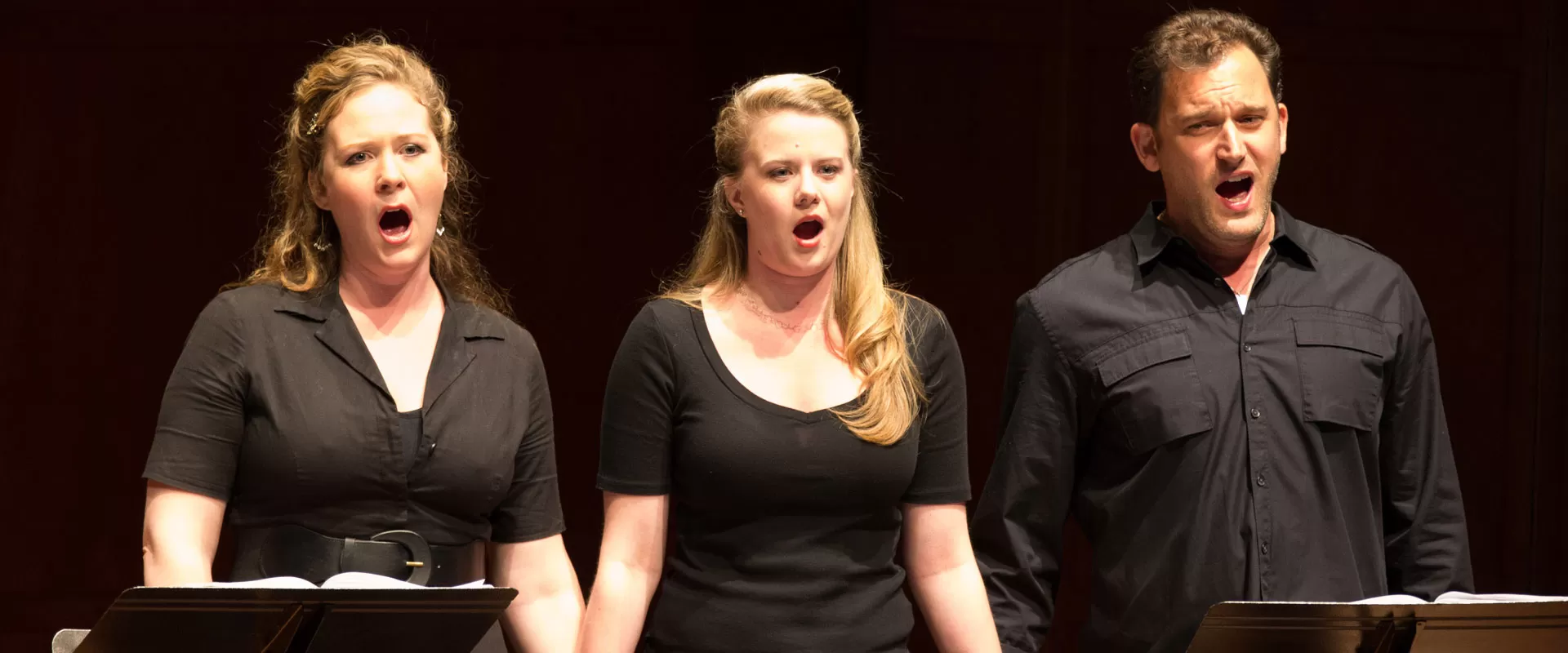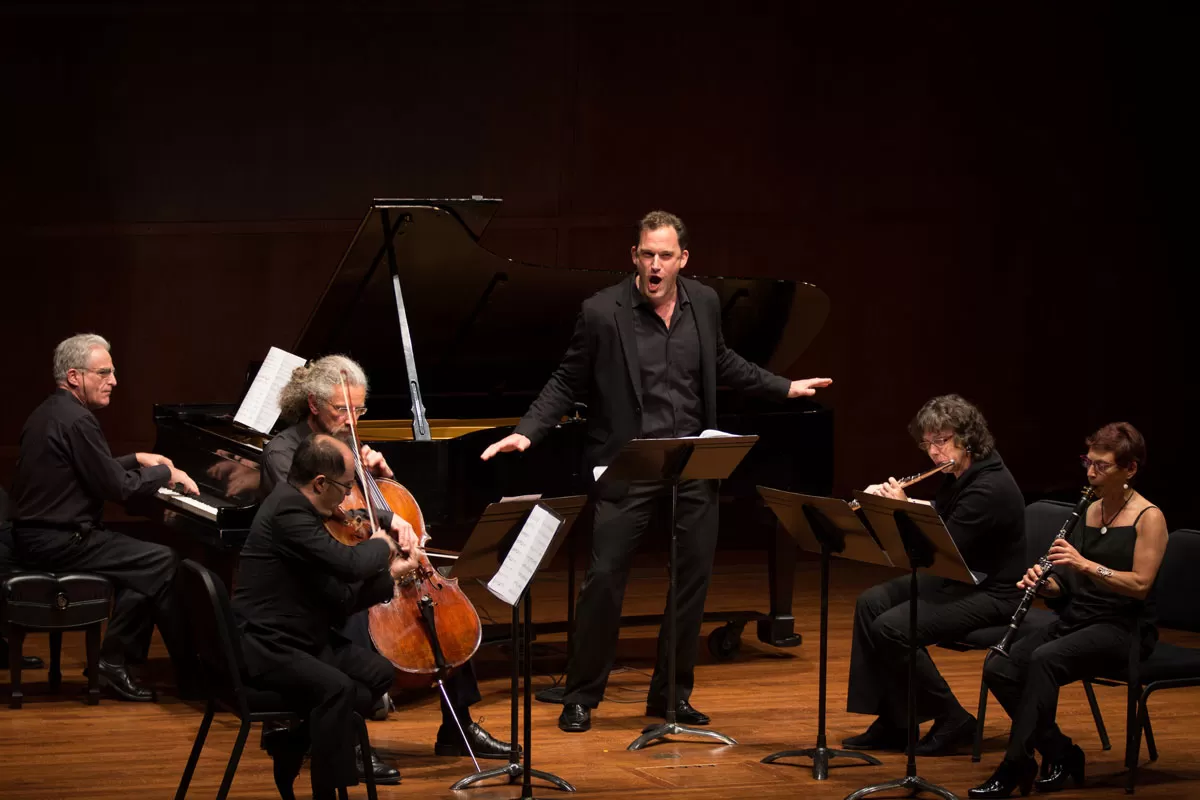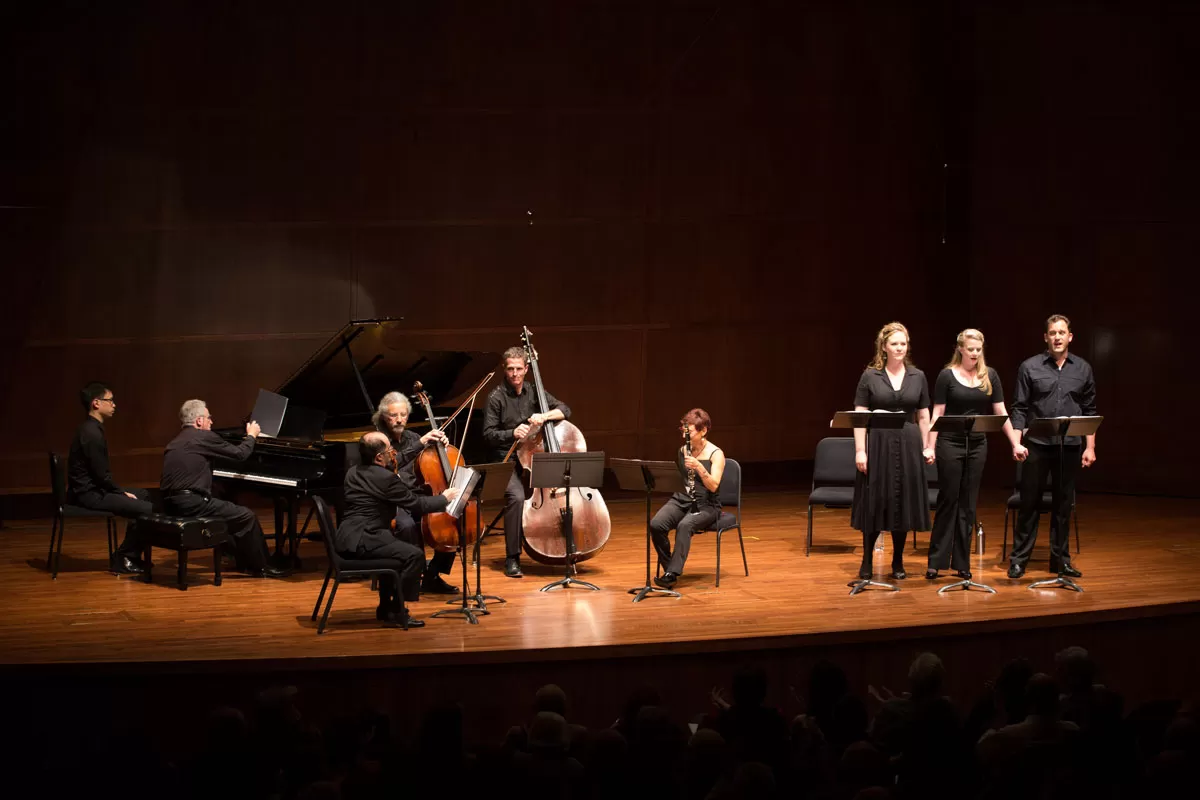Farewell, Auschwitz is MOR’s third commission from the creative team of composer Jake Heggie and librettist Gene Scheer. Through a musical setting of the poetry of Polish resistance member Krystyna Zywulska, this dramatic work offers a kaleidoscopic view of existence in Auschwitz. Passed around in Auschwitz by word of mouth, Zywulska’s poems became anthems among camp inmates.
Jake Heggie and Gene Scheer offer the following remarks about Farewell, Auschwitz:
Before being sent to Auschwitz-Birkenau as a political prisoner in 1943, Krystyna Zywulska had not written a single song. Writing lyrics and setting them to familiar folk, classical and popular tunes became her creative way to cope with the horror of life in the camp. She did not invent lyrics to save her life, but amazingly, they did just that. Appreciated by her superiors as the camp poet, she was given a premium job in the Effektenkammer (Room of Personal Effects): when a fresh transport arrived, she took inventory of the new prisoners’ belongings before these hapless women and children were sent to their deaths in the ovens next door.
Last year, Music of Remembrance gave the premiere of our dramatic scene of survival, Another Sunrise. Caitlin Lynch was the soprano who portrayed Krystyna and her struggle to tell the truth of what happened to her; to try to find the words to describe the indescribable, what she had endured in the camp, and what was required to survive--to see another sunrise.
Farewell, Auschwitz is a companion piece to Another Sunrise that allows us to explore some of the actual lyrics that Krystyna wrote. Thirty-two complete song texts survive from Krystyna’s time in the camp. There are an additional 54 fragments in a piece entitled Wiazanka z Effektenkammer (“Medley from the Effektenkammer”). Most of the lyrics for Farewell, Auschwitz are drawn from this extraordinary document.
In 1944, Krystyna crafted a long name-day card, which contained her texts and colorful drawings by fellow inmate Zofia Brato. Krystyna and 72 other prisoners signed and presented this remarkable gift to fellow prisoner, Kapo Maria Grzesiewska-Wojciechowska. On September 8, four inmates--including Krystyna--performed the songs for their beloved friend. (Source: Barbara Milewski: “Krystyna Zywulska: The Making of a Satirist and Songwriter in Auschwitz-Birkenau is Discovered Through Camp Mementos,” Swarthmore College Bulletin, July 2009)
Krystyna’s lyrics describe a broad array of experiences that prisoners faced each day. Her subjects range from whimsical gossip in the barracks to profound fears as well as dreams of rescue, survival and triumph. These lyrics are a window into the torturous psychological strain the prisoners faced as they tried desperately to hold onto their humanity while being forced to live in a place that defined the most inhuman behavior. Mostly, Krystyna’s songs speak to the power of music and the imagination to liberate one from even the darkest despair.
The lyrics in the original medley were set to well-known tunes of the day. Rather than attempt the almost impossible task of identifying the original tunes and creating translations from Polish to fit them perfectly, Gene made free poetic translations, which Jake has set in a variety of ways: sometimes imitating music of the period, acknowledging the influence of Kurt Weill and film music, sometimes with very folklike melodies, and in two cases by using classical tunes: Liszt’s La Campanella (after Paganini) and Chopin’s Waltz, Op 64, No 2. As prisoners in a camp might do, the singers sometimes imitate instruments to fill in the blanks.
Gene’s poetic translations are based on literal translations graciously made by his inlaws, Zbigniew and Anna Lechowski.






